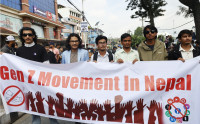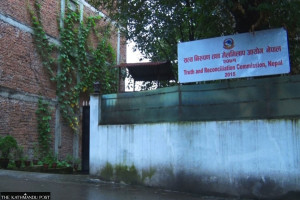Opinion
Curse of the nurse
Nursing in Nepal is a thankless job, maybe because almost all nurses are women
Muna Sharma
Despite Nepal’s ethnic pluralism and cultural diversity, a significant portion of the population is underrepresented in all aspects of services, including the decision-making process. With regard to gender equality, is there fairness and accessibility for all? If so, what about the nursing profession? Is the nursing profession unbiased and accessible to both genders?
Women as nurses
Whenever the subject of gender comes up, I remember hearing terms like gender equality, women and children-friendly, feminism and so forth. But the way I see it, gender is not only talking about women and children, it is more about social inclusion, regardless of sex, ethnicity or socio-economic status. On the heels of Women’s Day, it would not be biased if I talk about the nursing profession in Nepal where more than 99 percent of nurses are female. I wonder why almost all nursing professionals are women. Is the nursing service more challenging for males? Is this service a mid-level profession where there is no decision-making power but a lot of responsibility? Is this profession all about caring which people do not value? Or is it all about gender which determines that taking care of people is a role or a job for females only?
In this gender-friendly age, I find it relevant to discuss the nursing profession that is still being thought of as a women’s profession. Nurses are one of the largest groups of professionals working in the healthcare system. They play a very important role, from the time of a patient’s admission to their discharge. Their responsibilities include orientation, meeting all types of needs, especially biological and emotional, explaining rights to a patient, maintaining confidentiality, taking informed consent and following many other roles. When everything is going well at the hospital, there is no problem in the role of a nurse. But when something goes wrong, fingers are immediately pointed at nurses. Why? Because a nurse does not have authority but responsibility. How can there be a responsibility without authority? This is because nurses are females and females do not have a voice. Even if they have a voice, there is nobody to listen to them. And even if there is somebody to listen to them, there is nobody to lend support. This is the reality experienced by all nurses to some degree. If your sister, mother, daughter or wife is engaged in this profession, you may have realised what nurses have to do. She holds her bladder for a patient in pain, she skips her own medicine to administer medication to a patient, she puts off breastfeeding her baby to feed a newborn and she forgoes her family during festivals. Can a male make such sacrifices? If yes, why don’t they try to enter the nursing profession? While raising this question, I have to state that I know there have been almost four batches of male nurses in Nepal. But for some unknown reason, seats for male nurses were removed since 1990.
The glass ceiling
Another example of gender discrimination in nursing as a female profession is that there is no career ladder or inclusion of nurses in decision-making or management of health services. It is a fact in Nepal that nurses are the biggest human resources in the health sector and they are more accessible to people in remote villages in comparison to other health professionals. Furthermore, they are playing a vital role in primary health services. However, there is no provision for representation of nurses in planning. It is our reality that even if nurses have equal qualifications and experience as other health professionals, they do not have the opportunity to be in management.
For example, a nurse cannot be a hospital director. Is it because a female professional cannot be in a position of higher authority? How can other professionals who do not know much about the nursing profession be put in control? A nurse cannot be a health secretary in the Ministry of Health but a person who is not even from the health profession can be given that post. How efficiently and effectively can that person plan the country’s health system? If this is not a gender issue, why is there no provision for a nurse to have an equal opportunity to be an health secretary in the Ministry of Health, the director general of the health service division or the director of a hospital?
Despite these tremendous inequalities, nurses cannot ignore their professional role and responsibilities. The International Council of Nurses (ICN) has stated, “Nursing includes the promotion of health, prevention of illness, and care of ill, disabled and dying people and has the fundamental responsibilities to promote health, prevent illness, to restore health and alleviate suffering.”
Nowadays, health issues and the behaviour of health professionals have gained the attention of the public. Whatever the reason, the behaviour of a nurse and the service of nursing must be client-friendly; and the values of the profession must be the centre of practice, that is patient-centred, health-focused and holistic. But as females, conscious citizens and responsible persons, nurses have to fight for inclusion. At the same time, nurses cannot forget their professional ethics.
Choices to make
In conclusion, patients who are in need of nursing care are not from only one gender, they are all human beings with their own values, philosophies and cultures. Therefore, their needs are individual. Regardless of gender, they need autonomy, privacy and secrecy. Unfortunately, for male patients, there is no choice of nurses from the perspective of gender when they are hospitalised. Who is responsible for this? The health system of Nepal, the government, nursing profession, males as the upper caste in gender or the patients themselves? Besides, in the present context, all professions should be gender-friendly, meaning they should be friendly to both sexes. Therefore, it is high time that the nursing profession is opened to males too. And it should be left to the individual newcomer to decide whether to pursue nursing as a profession or not.
Sharma is a lecturer at Nursing Campus, Maharajgunj




 21.12°C Kathmandu
21.12°C Kathmandu











